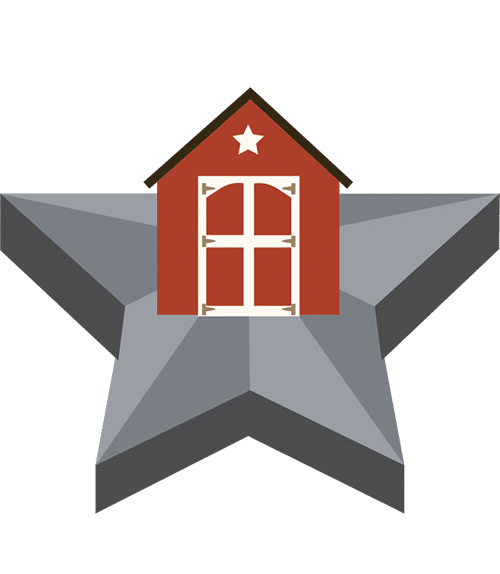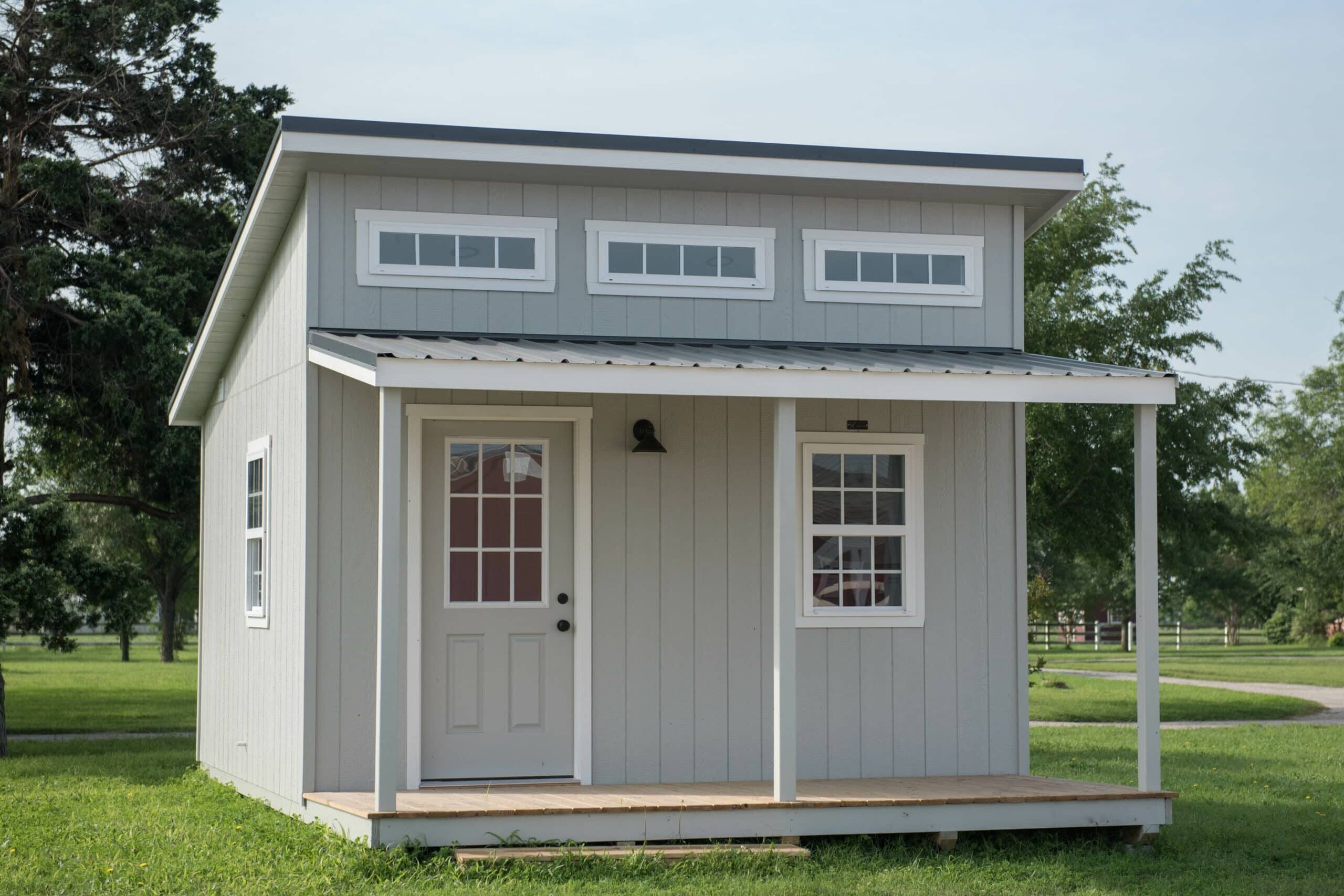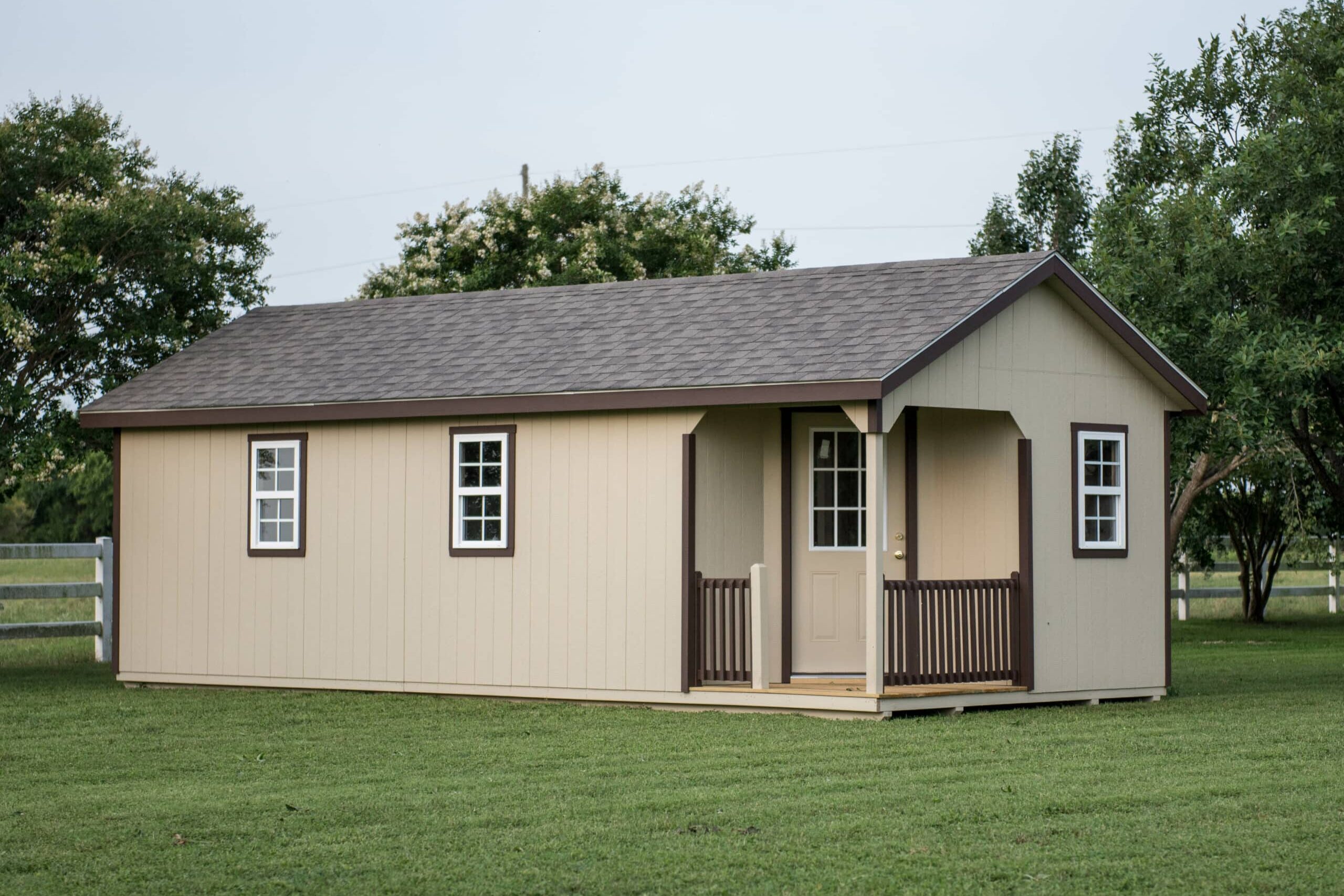Do I Need a Permit for a Portable Cabin in Bastrop, TX?
Yes. Building permits are required for any new structure, including portable cabins in the City of Bastrop. All construction must adhere to the city’s adopted building and zoning codes. Specific guidance for accessory or portable buildings is handled through the Development Services Department, which reviews plans for compliance with setbacks, lot coverage, and structural standards before issuing a permit. Contact Bastrop Development Services to verify whether your portable cabin might qualify for any minor exemptions (e.g., storage sheds under a certain size), but plan on a full permit and inspection process.
Do I Need a Permit for a Portable Cabin in Cedar Park, TX?
Yes. In Cedar Park, any residential accessory structure, including portable cabins, requires a building permit unless it’s a one‑story detached accessory building under 80 sq ft used solely for tool or storage purposes. Structures larger than 80 sq ft must be submitted through the My Government Online portal, including a site plan, foundation/anchoring details, construction elevations, and electrical or plumbing plans if applicable. Permits undergo inspections: layout, foundation, framing (if site-built), electrical/plumbing (if applicable), and final. The city enforces the adopted 2021 International Building Codes. For the most accurate information, contact the Cedar Park Building Permits & Inspections.
Do I Need a Permit for a Portable Cabin in Elgin, TX?
Yes. Elgin requires a building permit for any new structure or alteration, including portable cabins, within city limits. The city has adopted the 2021 International Residential, Building, Plumbing, Mechanical, Fuel‑Gas, Energy, Existing Buildings, Property Maintenance, Fire, and Electrical Codes. Additionally, accessory structures must conform to zoning and development standards overseen by the Planning & Zoning Division. Permit applications are submitted via the Building Division and reviewed for compliance with structural, safety, and site-specific codes before inspections and final approval .
Do I Need a Permit for a Portable Cabin in Georgetown, TX?
Yes. In Georgetown, any new accessory or detached structure (including portable cabins) requires a building permit and must comply with standards in the Unified Development Code. Setbacks depend on the zoning district and typically mirror standard accessory‑structure rules (e.g., ~5 ft from side/rear). Impervious cover limits apply to rooftops and driveways . In historic overlay areas, design consistency with existing homes is also required under the Historic District Design Guidelines.
Do I Need a Permit for a Portable Cabin in Liberty Hill, TX?
Yes. Liberty Hill requires a building permit for any new structure, including portable cabins and sheds. The city enforces the 2021 International Codes, and accessory structures must meet zoning setbacks, be located in side/rear yards, and comply with lot coverage limits. Setbacks are 3 ft side/rear and 20 ft front, with a minimum lot size of 5,000 sq ft. The permit expires after 180 days if work hasn’t started. For the most up-to-date information, contact the Liberty Hill Building Permits & Inspection Department.
Do I Need a Permit for a Portable Cabin in Lott, TX?
Yes. Lott is an incorporated city in Falls County and requires permits for new buildings and additions, including portable cabins. While the city does not currently maintain a public-facing website, permits are issued through City Hall. All structures must comply with basic safety and zoning standards, and setback rules are reviewed as part of the permitting process. For the most accurate information on size limits, placement, or inspection requirements, contact the City of Lott directly at (254) 584‑2681, Lott City Hall (Facebook), or visit City Hall at 117 E Gassaway Ave, Lott, TX 76656.
Do I Need a Permit for a Portable Cabin in Pflugerville, TX?
Yes. Pflugerville enforces the 2021 International Building and Residential Codes, and requires permits for detached accessory structures over 100 sq ft. These structures must comply with zoning setback rules (often 5 ft side/rear), lot coverage limits, and foundation requirements, and go through the standard permit review and inspection process. Contact the Pflugerville Development Services Department, or check the municipal code for specific size and setback thresholds.
Do I Need a Permit for a Cabin in Round Rock, TX?
Yes. In Round Rock, a building permit is required for most detached structures, including portable cabins. The city’s zoning code allows accessory dwelling units (ADUs) in specific zoning districts such as MU-L (Mixed-Use Limited) and OF-1 (Office). Detached ADUs must meet strict design, occupancy, and size criteria. For example, standalone ADUs in MU-L are limited to 450 square feet per floor, and garage-based units may not exceed 625 square feet, excluding balconies. All ADUs must match the principal dwelling in exterior materials and design. Zoning review is required prior to permitting, and permits must be obtained through the Planning and Development Services Department.
Do I Need a Permit for a Cabin in Salado, TX?
Yes. In the Village of Salado, building permits are required for new construction, including portable cabins and accessory buildings. Permit applications must include a completed form with a detailed site plan showing setbacks, building dimensions, and proximity to property lines and septic systems. Salado follows the International Building Code and requires that accessory structures comply with zoning and subdivision ordinances. Building permit fees are based on project value and must be paid prior to plan review. Bureau Veritas conducts inspections, and final approval is required before use. Permits expire if work does not commence within 180 days. For current forms and instructions, visit the Salado Development Services page.
Do I Need a Permit for a Portable Cabin in Taylor, TX?
Yes. In Taylor, any accessory or detached structure, including portable cabins, requires a building permit applied for via MyGovernmentOnline. The city enforces the adopted 2018 International Residential and Building Codes. Permit applications must include site plans showing setbacks, foundation or anchorage details, and elevations. Zoning review is required before code review. Setback standards follow zoning district rules, and the Development Services Department oversees inspections and approvals.
Do I Need a Permit for a Portable Cabin in Temple, TX?
Yes. Temple requires a building permit for any new or altered structure, including portable cabins. Applications via MyGovernmentOnline must include a detailed site plan with distances from all property lines (typically 3 ft from side, 10 ft from the house, and 25 ft from commercial buildings). Permits undergo a 10-business-day review, followed by inspections and final sign-off. The city enforces adopted model building codes and zoning standards. For the most accurate information, contact the Temple Building Permits & Inspections Department.





